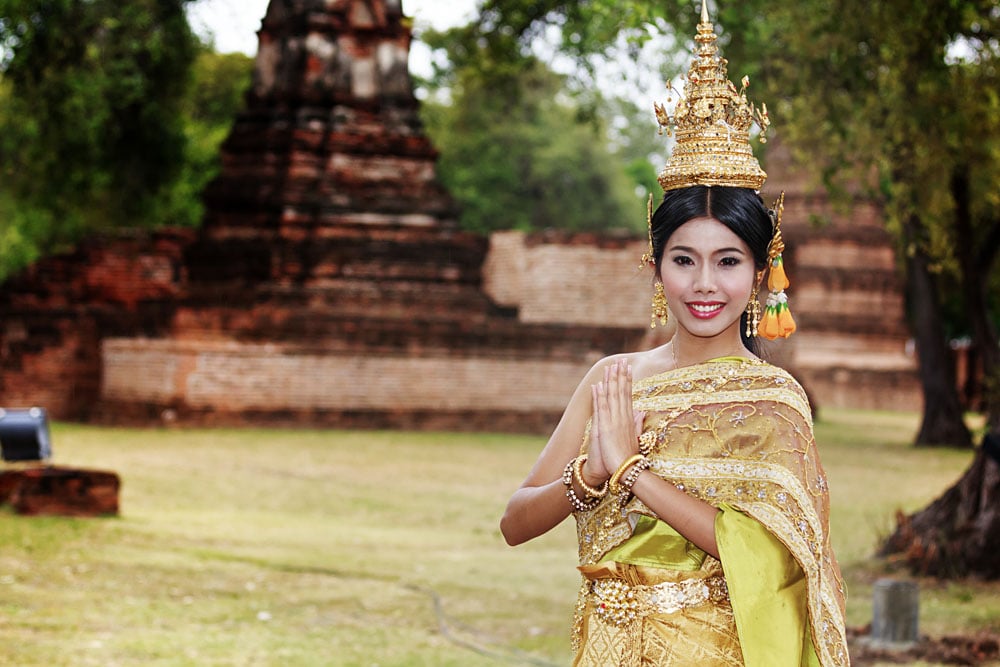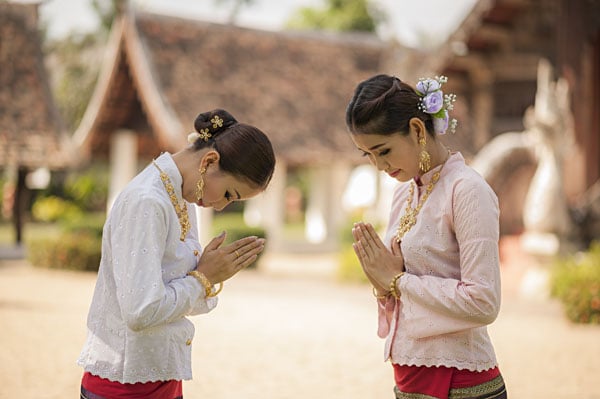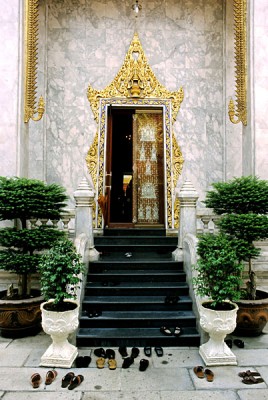
Etiquette in Thailand
Thailand is an ideal country for anyone’s first visit to Asia. There are many flights to Bangkok, entry requirements are easy for most westerners, and tourist infrastructure is well developed in all popular regions of the country. Better still, most Thais maintain a deep respect for their traditions and customs, even in the face of Bangkok’s frenetic rush towards modernity. This allows you to immerse yourself in one of Asia’s most fascinating and beautiful cultures, while keeping the conveniences of the modern city close at hand.
What’s more, Thailand is known to be one of the best value destinations. Return travellers often rave about how their expectations were superseded. Thailand allows them to experience luxury at an affordable price, taking pride in its ability to spoil her visitors.
Like any foreign country, Thailand may at first perplex you with some of its traditions, but don’t worry. Understanding and respecting the simple ones will endear you to the locals, and save you from being the wrong kind of ‘farang’ on your vacation.
Your Wai or the Thai Wai
When you see Thais press their hands together with a slight bow, this is called a wai. The custom was brought to Thailand by Hindus from India, and has spread in popularity over centuries. The rules surrounding it are more complicated than you might imagine. Not all wais carry equal weight or convey equal respect. Generally speaking, younger people or those lower in social standing should wai first. The higher the hands, the more respect is being conveyed. It’s also not unknown for Thais to wai as they pass by temples or spirit houses.
Where does this leave a westerner? Off the hook, is where. Thais are generally aware this gesture is particular to their culture and so do not expect foreigners to make the attempt. Though you are unlikely to offend anyone with an incorrect wai, a handshake (usually to men) or light bow (usually to women) is usually enough.

The Music That Stops a Nation
If you’re out in a public place at 8am or 6pm you’ll probably hear music played from loudspeakers, then watch as all the Thais around you come to stand-still in complete silence. Even some escalators stop running until the music stops. No, this isn’t some elaborate street improv act. It’s the Thai national anthem. It lasts about a minute, and yes, every Thai able to hear it will stop what they’re doing and stand still out of respect. Following their lead and doing the same is a simple way to show respect for the local culture and will be appreciated by any Thais who are with you at the time.
Manners and the King
The reverence Thais have for their King and Royal Family is about more than simple respect. In Thailand, the King is divine, and showing disrespect to royalty is a criminal offense known as lèse majesté. This law is more than mere symbolism. Four or five cases are typically heard before the courts each year, and political opponents have been known to level the charge at one another in times of crisis.

As a visitor however, simple politeness and common sense should keep you out of trouble. Don’t criticize the Royal Family in any way. Don’t damage, tear, or step on Thai currency (which carries the King’s image). Also, leave any material related to Anna and the King or The King and I at home. Western versions of this story are seen as mocking the Thai Royal Family, particularly Mongkut (also known as Rama IV) who employed the real Anna Leonowens. It is illegal to possess any western version of the story or related material in Thailand.
Respect from Head to Toe
In Thailand, different parts of the body imply and command different levels of respect. Sorry lefties, but Thais use the right hand for eating, passing gifts, and shaking hands. You should do the same. If you’re confused about body language, simply remember that the head is sacred, while the feet are thought to be unclean. Never touch a Thai person’s head unless invited, and if you do so by accident, apologize right away. Conversely, never point your feet at anyone, as this also is considered very rude. It’s also the reason you never step on Thai currency (even to stop it rolling away). You absolutely do not want to be seen standing on an image of the King.

Temple Etiquette
Thailand’s temples are magnificent, and you’ll probably spend a good chunk of your sightseeing inside them. The big tip here is slip-on shoes, since your shoes must be removed before entering most temples. Photos are usually welcome, but refrain from using your flash or photographing worshippers or staff directly. Remember, these are not just beautiful historic buildings. People come here to worship and pray. Finally, when you enter the temple, step over the threshold, not on it, since many Thais believe spirits reside there.
Rules of the Thai Table
Leave the chopsticks for your local ‘pan-Asian’ restaurant! Real Thai food is eaten with a fork (left side) and spoon (right side), which you’ll find far more useful in most cases. Spoon the food (which is usually shared) to your rice bowl and eat from that. It’s polite to leave a little to show you are full – unless of course you intend to eat more, in which case, summon the server by waving quietly with your palm down and saying ‘nong’. Do not snap your fingers or raise your voice. Tipping is not customary in Thailand.
There are many more aspects to Thai tradition, culture and etiquette waiting to be explored, but these are the major points to keep you out of trouble. The rest will be all part of your adventure in this fascinating country.
Practice these etiquette rules on one of our Thai luxury itineraries:
11-Day Luxurious Classic Thailand
12-Day Luxurious Thailand Escape
12-Day Thailand in Style (with International Airfare)
For more travel ideas to Thailand, please visit our website at www.goway.com.
Get more travel inspiration by email.
Subscribe
0 Comments

Get the latest travel trends & hear about the best deals on vacations around the world.
If you’re a Globetrotter, these are the newsletters for you!




